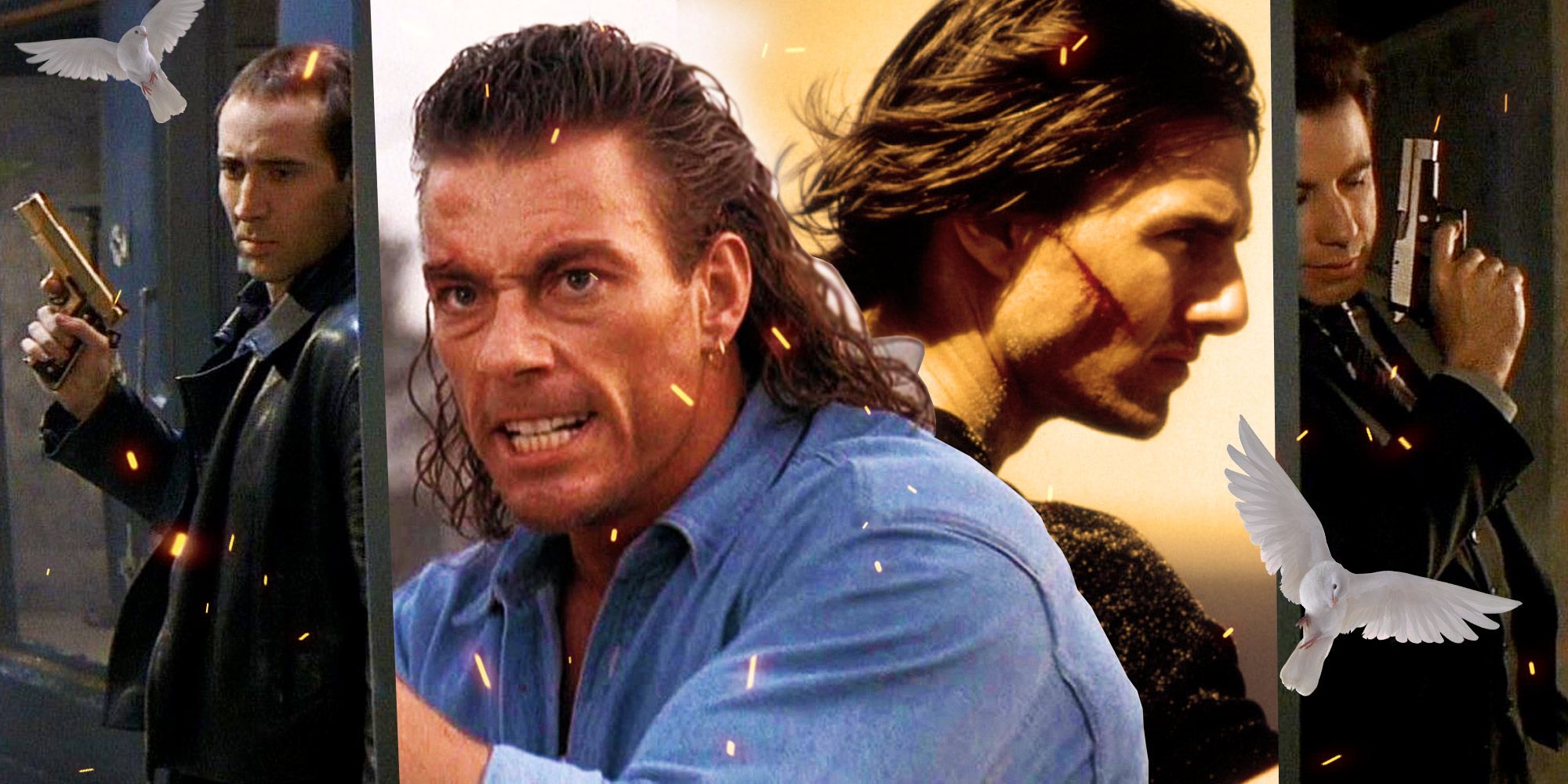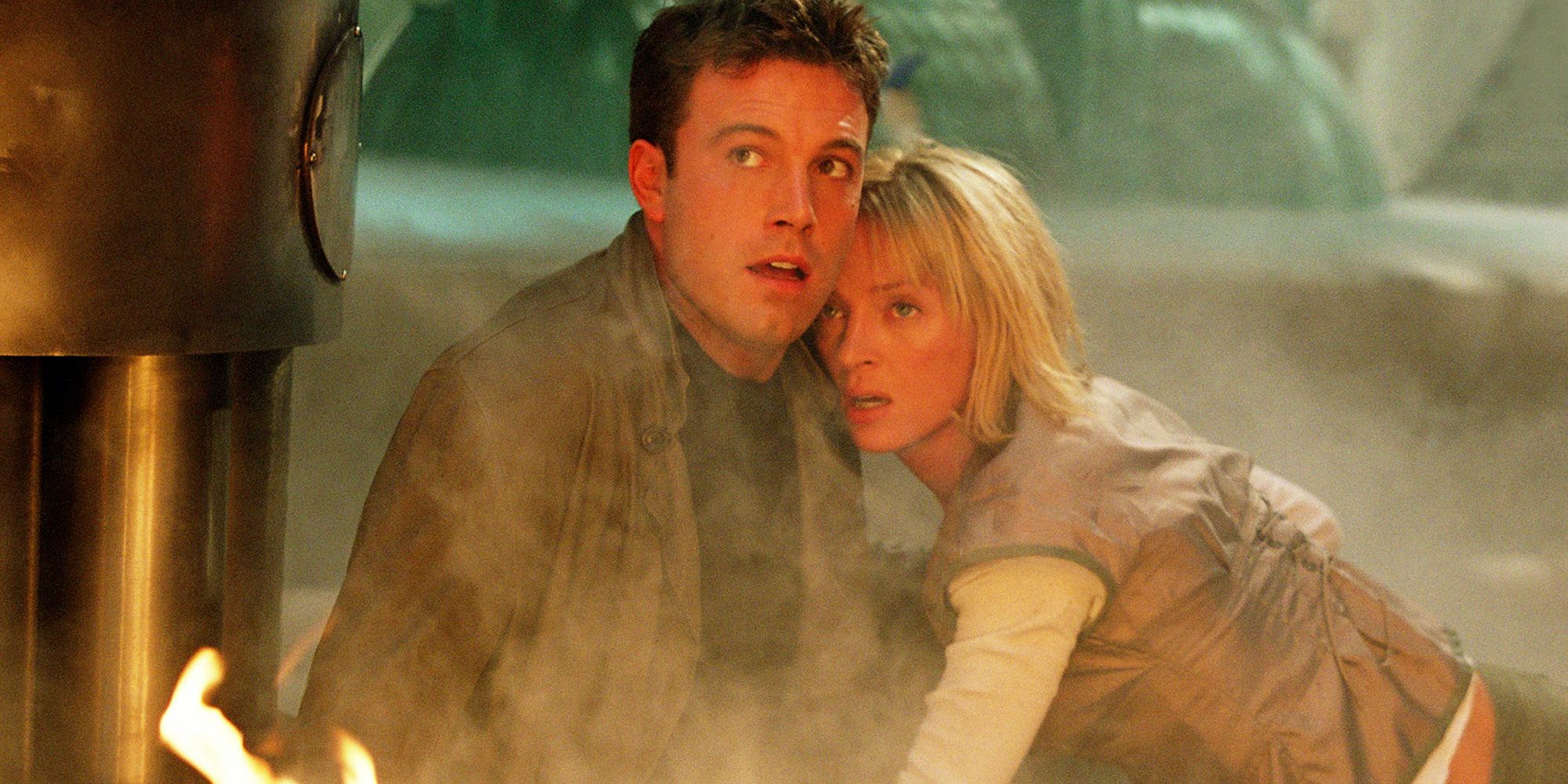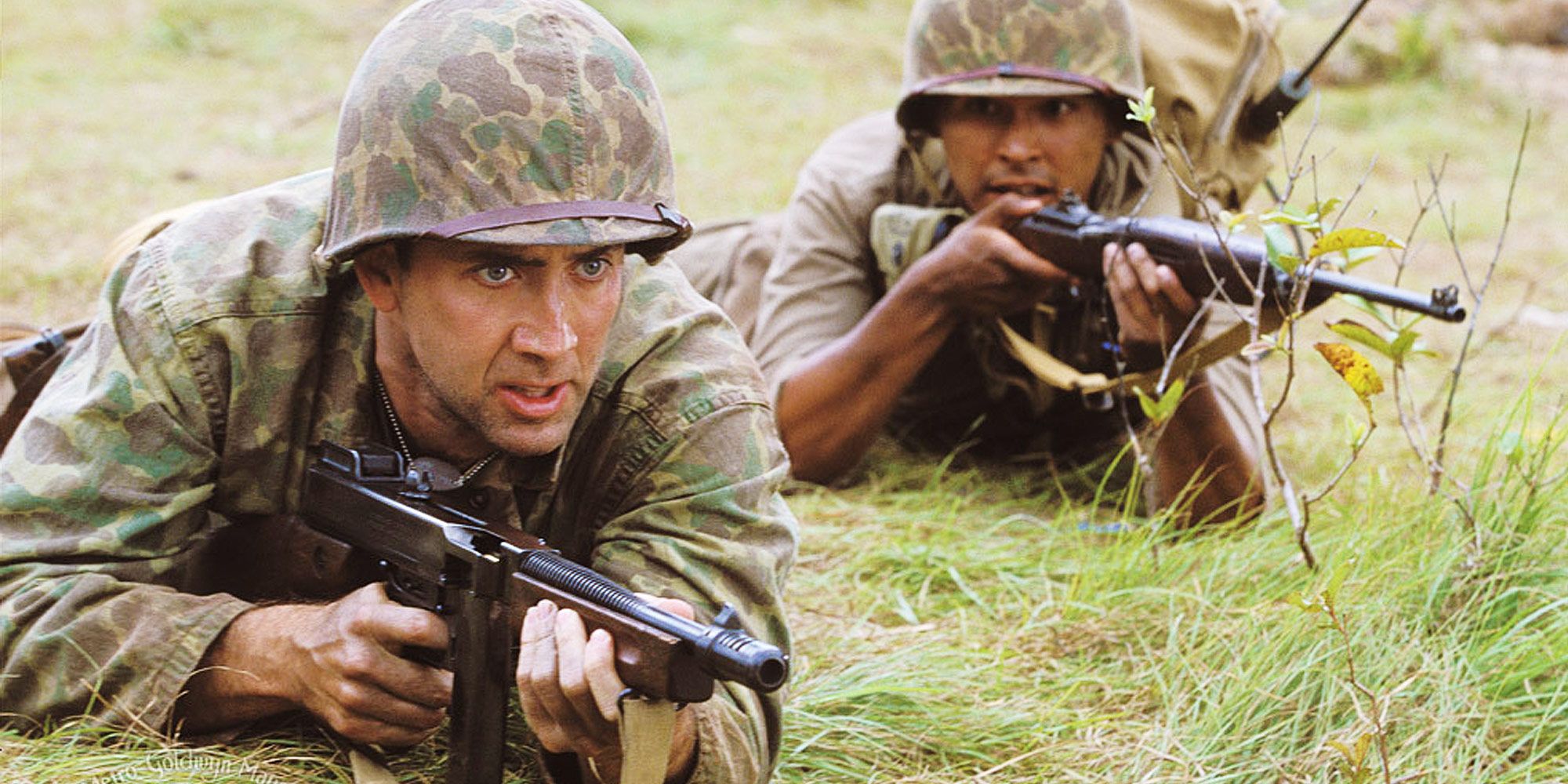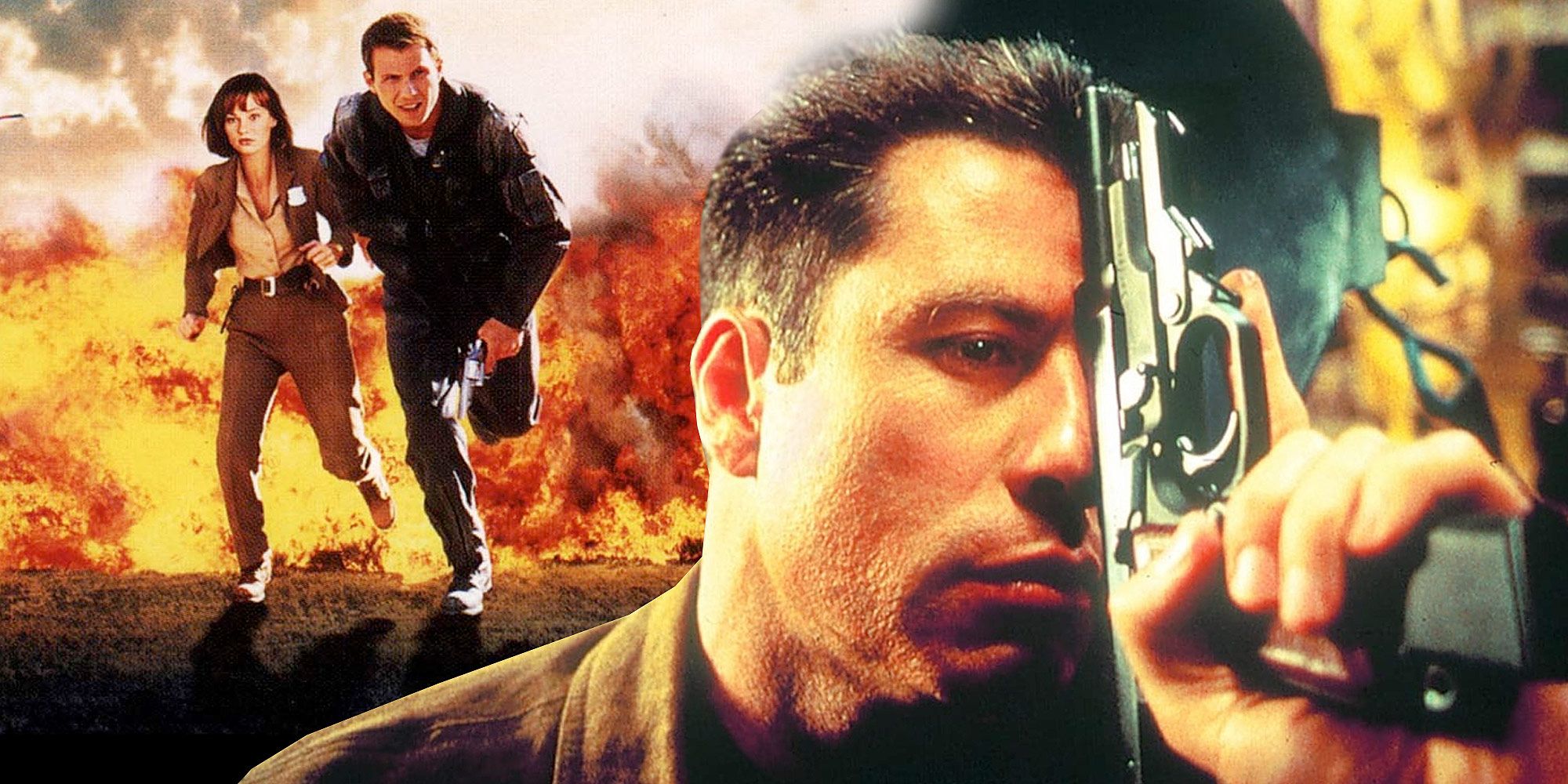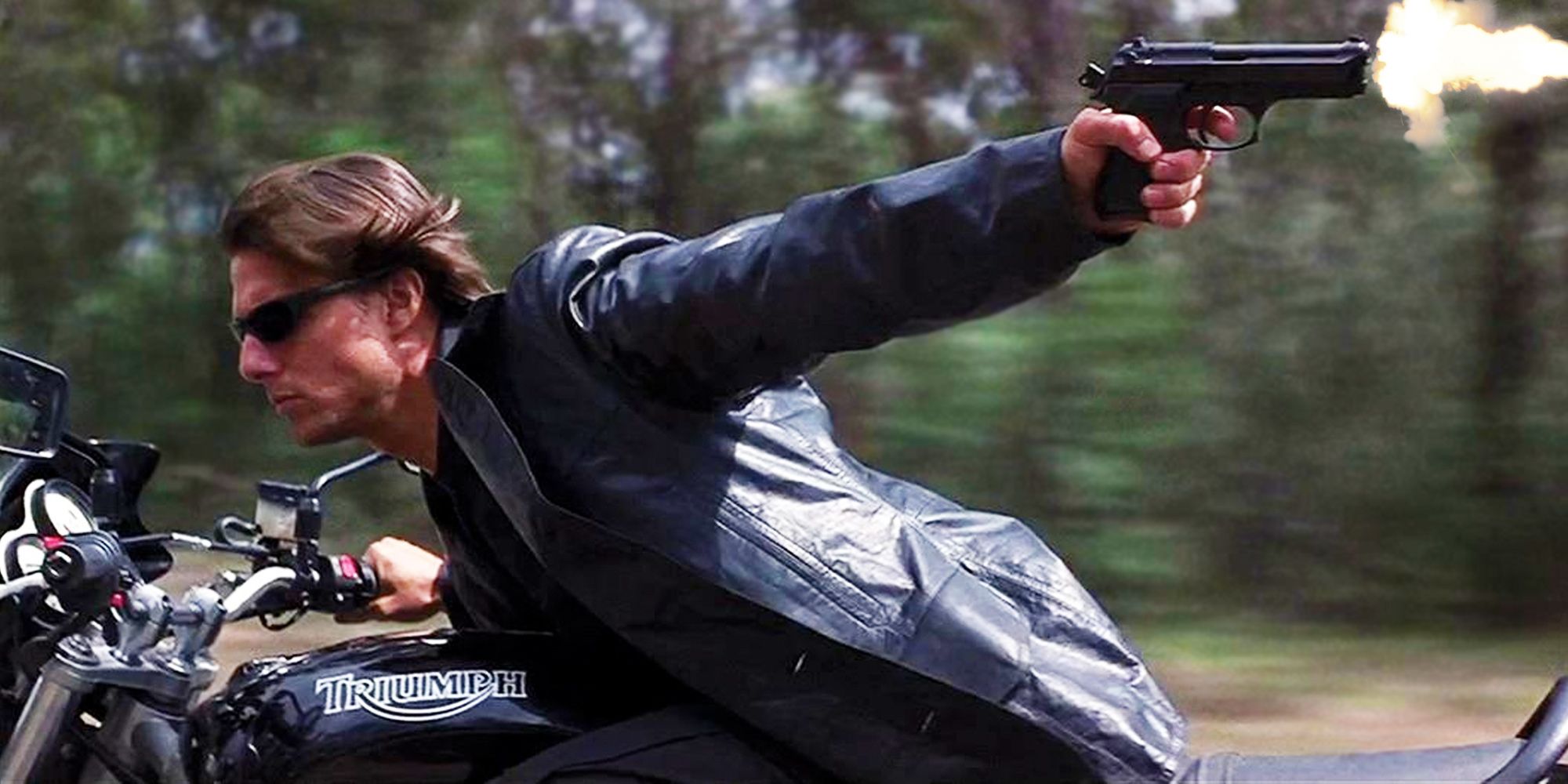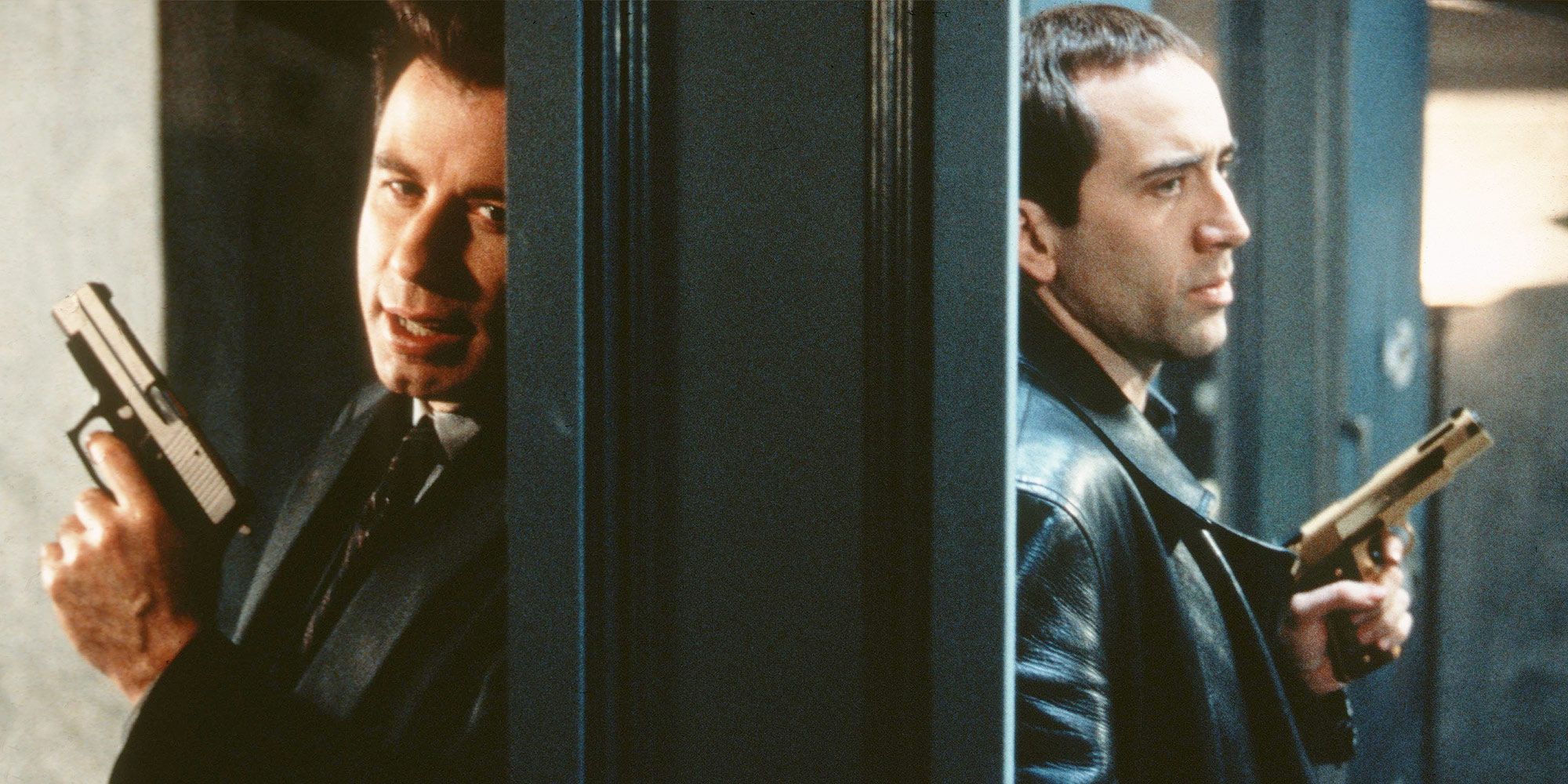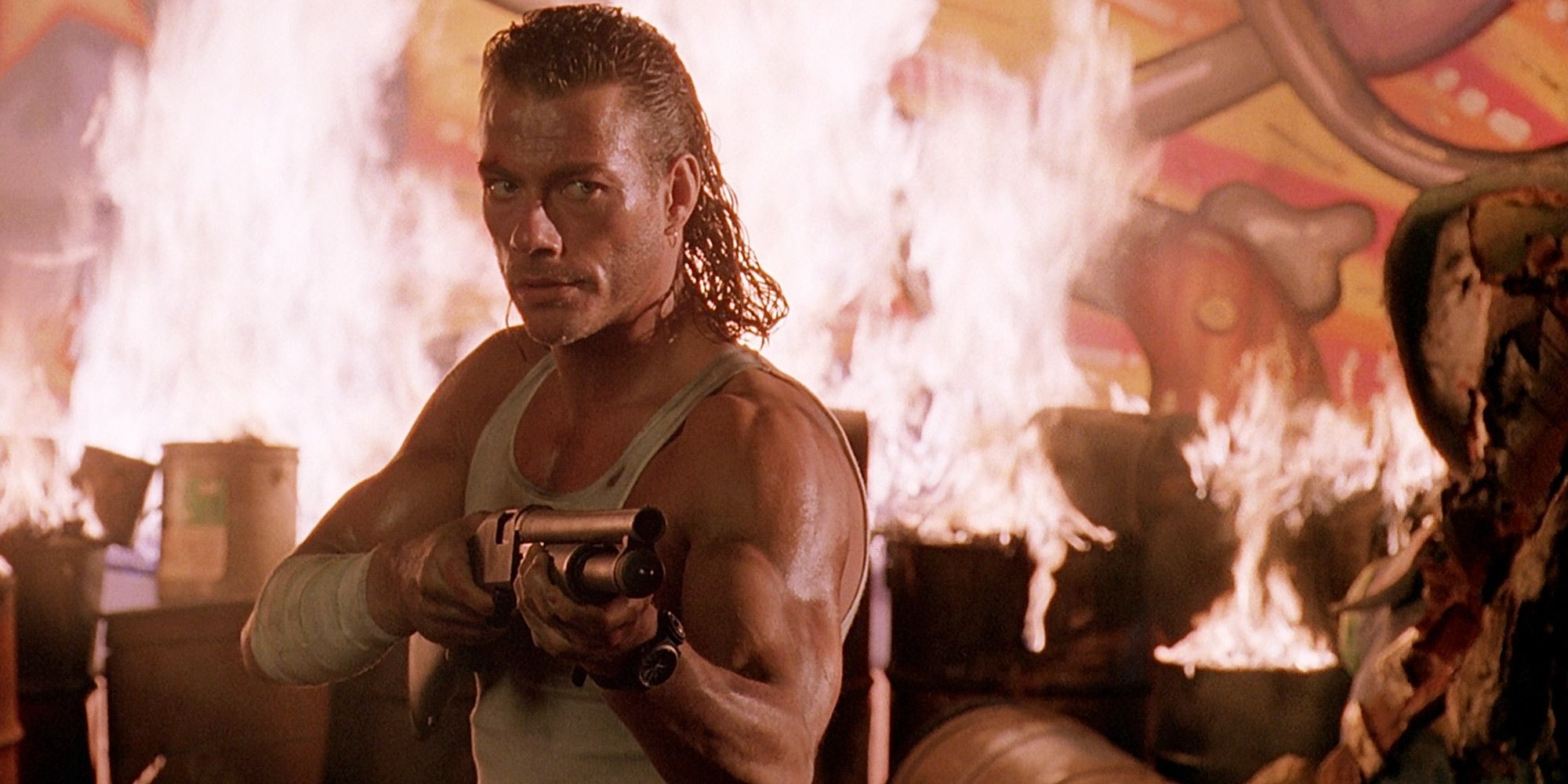Director John Woo is one of the most influential action filmmakers of all time, having helped usher in the era of action movie iconography and aesthetics that have become a mainstay in the genre, and here's a ranking of his American films. Woo began his career with Golden Harvest and Shaw Brothers martial arts films, later graduating into the "heroic bloodshed" genre, which focused on themes of crime, brotherhood, redemption, and hyper-stylized action and violence. In 1986, Woo directed A Better Tomorrow starring Chow Yun-Fat, which became a landmark film for Hong Kong cinema, beginning an era of highly-choreographed, slow-motion heavy action films, complete with near superhuman feats of bloody violence. Specifically, the two-handed gunplay (later termed "gun-fu") has become a staple of modern action cinema.
Woo's 1989 thriller The Killer, starring Chow Yun-Fat and Danny Lee, was the film that first blipped on American radars, which is the biggest showcase for his unique and specific style. The film became one of the most successful Hong Kong releases in the U.S. since Bruce Lee's Enter The Dragon. Thus began Woo's American invasion, as his style began to trickle down to U.S. filmmakers with famed action director Walter Hill (48 Hours, Extreme Prejudice) writing a remake of Woo's The Killer, earmarked to star Richard Gere and Denzel Washington, although it failed to get it made. Nonetheless, Woo's stylistic approach was adopted as early as 1991 in the U.S., where director Tony Scott explicitly used it in his Bruce Willis action thriller The Last Boy Scout. From there, Woo's influence took hold in all manner of films from The Replacement Killers to Robert Rodriguez's El Mariachi (and later Desperado) to The Matrix and John Wick, all of which borrow more than a few tropes from Woo's toolkit.
Woo's jump to American cinema was shaky, but he managed to produce more than a few films that honor his style and aesthetic. The director struggled with the language barrier and "Hollywood" way of doing things but persevered nonetheless, finding opportunities in various projects, some that made better use of his skills than others. In many ways, Hollywood studios simply did not understand what they had in Woo, nor did they appreciate his overall approach to filmmaking. Woo's gun-fu style was constantly cut down by studios that lacked the confidence in the product Woo was making, regularly chopping up his films to make a rating and sacrificing the "overkill" because of their own inability to comprehend his stylistic vision. This conflict eventually led Woo back to his native land, where he could make the films he wanted to make without compromising his vision or kowtowing to studio incertitude (although he is teasing a return with Joel Kinnaman). However, his U.S. resume is a unique grab bag of films that range in faithfulness to who he is as a filmmaker, some of them standing as classics in the genre, while others fall way short of his talents. Below is the ranking of his worst to best American films.
#6 - Paycheck (2003)
Paycheck, Woo's last American film before returning to his native China, is by far Woo's worst stateside film. Despite the star power of Ben Affleck, Aaron Eckhart, Uma Thurman, Paul Giamatti, Joe Morton, Michael C. Hall, and Colm Feore, Paycheck's title feels oddly ironic as it seems like that's the only reason it was made. Culled from the sci-fi story by Philip K. Dick, it seems like Woo couldn't care less about the gadgets and sci-fi gobbledygook, doing everything he can to infuse guns, explosions, and a motorcycle chase into a film that needed far more focus on story than action. Affleck plays a "reverse engineer" who studies and replicates competing technologies with improvements, giving those who hired him a marketplace advantage. The catch is that his mind is wiped afterward, and he forgets all about his deeds. Of course, there's always a dilemma, and a double-cross at some point, which sets off a chain of events leading to Woo's attempts to make an action movie out of a sci-fi concept to middling effect. Despite having such a strong cast, none of them are particularly appealing or noteworthy, with the biggest standout being John Powell's energetic score, which belongs in a better movie. In the end, Paycheck served as the final nail-in-the-coffin of Woo's U.S. films, as it was the one that he seems to have lost his mojo completely on. It feels more like a film directed by someone wanting to be John Woo, rather than actually being John Woo.
#5 - Windtalkers (2002)
Windtalkers is exactly what one would expect from a John Woo war film, meaning it's basically a John Woo action movie in a war setting. For some, that may sound like a ticket to paradise. Still, Woo's sensibilities are hindered greatly in this genre, as the director struggles to tell the story with the emotional weight it needs, despite the many shocking moments and sudden deaths that pervade it. Nicolas Cage plays a PTSD-laden Marine Veteran who is assigned to safeguard a "windtalker," a Navajo-speaking code talker, who relays messages in his native tongue to thwart their Japanese opponents in the Pacific theater of WWII. Windtalkers is a tremendous step back for Woo, as the film suffers from a strained production design that often feels cheap, and the dialogue is so stereotypical that it could've been lifted straight out of a 1950s-era war film. Cage does his best here, but can only elevate the scraps of a script so much. His co-star, Adam Beach, doesn't fare any better, as his aw-shucks innocent code talker never really comes into his own in the film. There's action and shootouts throughout, but this is the messiest it's ever been for Woo, as it feels like the scale simply got away from him. Windtalkers is ambitious in concept only, as every other aspect falls tremendously short, and it stands as a shell of the director's usual attention to detail and inspired chaos, finishing up as a dull thud in his filmography.
#4 - Broken Arrow (1996)
Broken Arrow serves as Woo's second American feature, and it's evident that he found inspiration in John Travolta, who gives a positively wild performance (coining the now-famous line, "Ain't it cool?") as Vic Deakins, a Stealth aircraft pilot who decides one day to crash the plane and steal the nuclear devices on board in order to sell them. The problem is that his co-pilot, Christian Slater's Riley Hale, is also on that aircraft and decides to go after his former friend before the nukes hit the market (and the world). Broken Arrow quickly becomes a race-against-time, chase-through-the-desert actioner, with Travolta bleeding charisma and Slater playing the reluctant-yet-persistent hero. Samantha Mathis joins the fun as a pseudo-love interest park ranger wrapped up in the misadventures, which is composed of several set pieces in the Utah desert, including a mine shoot out, a genuine underground nuclear explosion, and a train chase finale that ends in true 90s action-movie style. Woo works in his usual magic tricks, but ultimately, Broken Arrow is just too silly and ham-fisted to get invested in outside the over-the-top action, with a nonsense plot and dialogue that comes off as a series of one-liners rather than any semblance of an actual conversation.
#3 - Mission: Impossible II (2000)
Mission: Impossible II is the most stylish of all of Tom Cruise's action films, which takes full advantage of Woo's skills, once again for better or for worse. It's the silliest movie in the Mission: Impossible franchise with a stripped-down story about a virus called Chimera and a group of terrorists, led by a former M:I agent named Sean Ambrose, played with snarling glee by Dougray Scott, attempting to attain and unleash it upon the world. Cruise's Ethan Hunt teams up with a thief (Thandie Newton) who knows Ambrose in order to bring him down. From there, it's a series of operatic action scenes, including a flirty car chase, A high-rise infiltration/shoot out, and a finale that includes flying doves, a motorcycle chase stunt, Tom Cruise doing his best Chow Yun-Fat, complete with sunglasses and leather jacket, and a massive brawl on the beach to top it all off. It's a strong example of what happens when a big studio hires an auteur director, hoping he'll do his thing but also hoping he doesn't do too much of his thing. Woo managed to sneak in his footprint on the film, and it's ripe with his trademark style (as well as a rock-band soundtrack by Hans Zimmer), but for the first time, the director is hindered by a watered-down PG-13 rating.
#2 - Face/Off (1997)
Face/Off is probably the most respected and well-known of Woo's American films, as it was a big success for the director and features two scene-chewing performances from the leads, John Travolta and Nicolas Cage. Travolta plays Sean Archer, a lead F.B.I. agent on the hunt for Castor Troy, played by Cage, a terrorist criminal who also happened to assassinate Archer's son years before. After capturing Troy and putting him in a coma, Archer finds himself in a predicament when he needs Troy to be present to get some information in stopping a major terrorist attack. The solution? Borrow Troy's face. The wacky high-concept idea seems ridiculous on paper, but once Travolta and Cage switch places, effectively getting to play both roles in their respective bodies, the fun really begins. From airport shootouts to prison escapes to hideout raids and a Woo-esque church shootout that leads to an explosive boat chase, Face/Off manages to work in Woo's gun-fu antics and slow-mo action, but with a catch; the actors are actually really great. For the first and only time in his American resume, Woo is able to let two esteemed actors do what they do best in his playground, and it's a blast to watch unfold.
#1 - Hard Target (International Cut) (1993)
Hard Target is Woo's first American film, coming directly off of his final Hong Kong film at the time, Hard Boiled. Starring Jean-Claude Van Damme as Chance Boudreaux, a New Orleans drifter with a combat background, who is hired by a woman (Yancy Butler) seeking to find her missing father. Her father was hunted and killed by a group of men led by Lance Henriksen and Arnold Vosloo, who are recreating The Most Dangerous Game for rich clients, enjoying a season in the Big Easy until Chance shows up to ruin their plans. The film is the rawest and unfiltered of Woo's American films, especially the international cut, which features more bloody close-ups, slow-mo shots, acrobatic stunts, and overall mayhem, particularly in the third act, which is a balls-to-the-wall, unhinged Woo-fest of balletic bullets, debris-showering explosions and kicks to the face, all set within the confines of a New Orleans parade warehouse in the sticks. The dialogue and signature slow-motion intros and outros are all in full effect here, as are the flying doves. Universal struggled to understand what they had in Woo, cutting the U.S. theatrical version down a few notches, but the international cut is the truest to his style and closest the U.S. ever got to genuine John Woo movie made in America.

